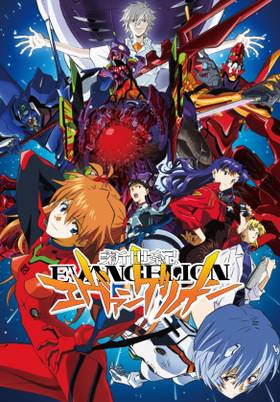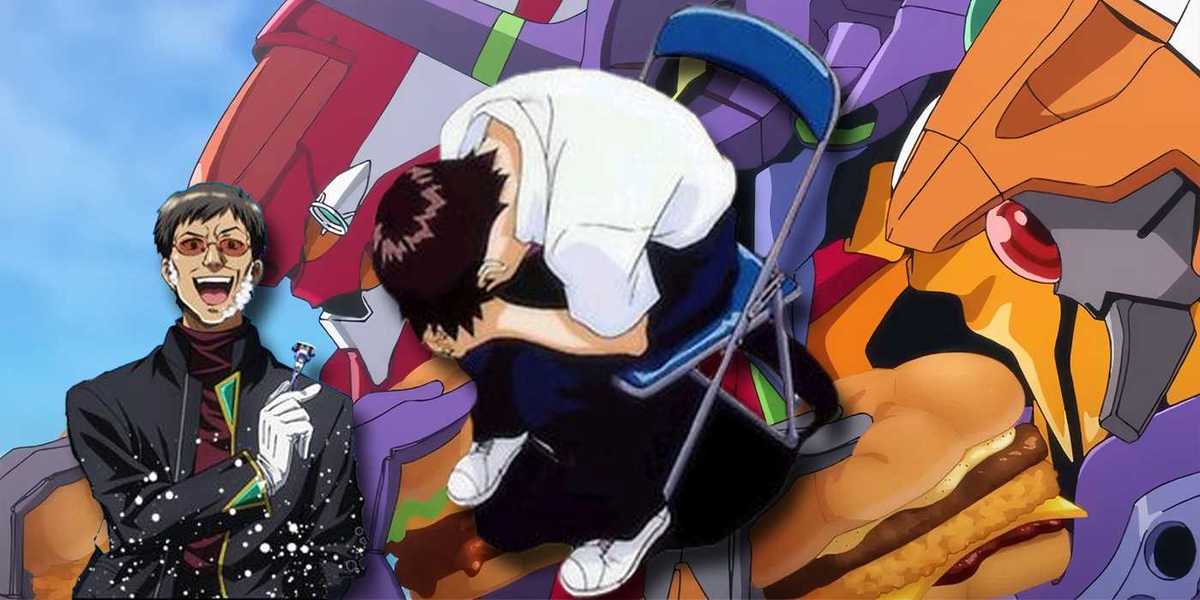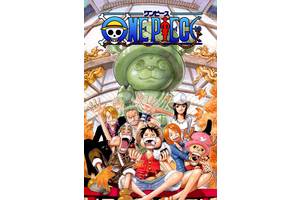Even the Most Controversial Anime Endings Can Be Fixed, and Evangelion Proves It
It's never enjoyable for fans when a beloved anime comes to a close, especially one as memorable as Neon Genesis Evangelion. Nonetheless, anime endings are inevitable. While fans understand that no series can continue indefinitely, this knowledge only partially alleviates the sense of loss that comes with the conclusion of a show.
Alongside the hope that a series will continue for as long as possible lies a parallel desire: if a show must end, it should conclude with a satisfying and meaningful resolution. This means an ending that honors the narrative, whether through resolving character arcs, answering long-standing questions, or paying respect to the show’s history. Regardless of whether a series lasts one season or several decades, the hope within fandom remains consistent — when a show reaches its conclusion, the ending should be crafted with care and purpose.
The Problem With Neon Genesis Evangelion's Ending
One of the Most Debated Endings in Anime History
Fans aren’t the only ones who hope a series ends well — its creators do too. In fact, as Neon Genesis Evangelion neared its conclusion in 1996, director Hideaki Anno shared the same hope. Anno made this clear in an interview with the anime magazine NewType shortly after the original series' final episode. As translated by American writer Gwern Branwen and posted on his website, Gwern.net, Anno revealed that Evangelion was largely an improvisational effort. Each episode's script was shaped by the creative team’s mindset at the time, making the process highly fluid and dynamic - and highly subject to "the moment".
The creative flexibility included planning the final episodes, which Anno described in the NewType interview as reflecting his mood at the time. Consequently, considering the story's progression, he believed it was essential to explore the psychological states of Shinji Ikari and his colleagues rather than continuing the original narrative. His hope, shaped by his mindset, was to use the ending to emphasize that people are at the heart of the story – both influenced by events and capable of influencing their outcomes.
In a 2021 interview with The New York Times, Anno revealed that during the original series' broadcast, he struggled with the after-effects of severe depression.
Unfortunately, for many fans, Hideaki Anno's creative vision clashed with their expectations. They hoped the conclusion would unveil the characters' fates, the true nature of the Angels, and resolve the series' lingering mysteries. Furthermore, they desired a continuation of the action-oriented, plot-driven structure that had characterized the earlier episodes. Instead, they were met with Anno's abstract expressionism. This, combined with the notable use of rapid-fire imagery, sketches, and reused footage—which Anno attributed to production and budget constraints — led many to perceive Neon Genesis Evangelion's promising build-up as ultimately culminating in a disappointing finale.
Anno's Years-Long Quest To Set The Record Straight
The Director Remade the Ending of His Franchise Until He Was Satisfied
In a NewType interview, Hideaki Anno initially expressed no regrets about how the original series ended. He criticized many of the show's detractors for not understanding or respecting his artistic vision. However, in a New York Times article, Anno also admitted that the story, even now, "has not yet ended" in his mind. His dissatisfaction does not appear to stem from public opinion but rather from his own feeling that there was more to the story and that he had not told it as he intended.
However, rather than settling for the original ending, Anno chose to revisit it — first with the 1997 film The End of Evangelion, then with the Rebuild of Evangelion film series, and once more with the 2021 film Evangelion: 3.0+1.0 Thrice Upon a Time — until he was fully satisfied. Throughout this process, Anno has consistently emphasized that he was not attempting to “fix” any so-called problems that the public perceived in the series. In fact, he has repeatedly stated that, just like the original series ending, each subsequent revision reflects his emotions and perspective at the time. Those feelings reflect his lingering sense that there was more to the story yet to be told.
In response, Anno has pushed back against the argument that he altered the ending merely to silence criticism. Instead, he contends that each new iteration of Neon Genesis Evangelion represents an evolution of the narrative —a more comprehensive and refined improvisation— that incorporates his personal growth and philosophical maturation over the years. Anno’s intent with the original Evangelion series’ conclusion was to emphasize the human element of the conflict. By infusing his own evolving humanity into the series’ development, he has crafted a more nuanced and polished interpretation of the original story’s core message.
What Evangelion: 3.0 Means for Anime and Manga
Of course, Neon Genesis Evangelion isn't the only anime series that failed to meet its fanbase's expectations or left its creators feeling unsatisfied. While the common approach in such situations is often to move on, Anno's method of continuous revision offers a viable alternative: creators can revisit and reinterpret their original work without invalidating it. Subsequent iterations can coexist with the original, each holding its own value. However, as Anno's experience demonstrates, this approach demands a significant degree of creator confidence, as it's unlikely to be universally embraced by fans.
Anno’s alternate path to the realization of artistic license demonstrates that a new version of a series ending does not need to be organized as a repair job for the original series. Indeed, Anno did not redo the series finale in his subsequent works. Instead, he organized the follow-up series as an expansion or reinterpretation of the story. Additionally, Anno's subsequent Evangelion works demonstrated that creators —at least those creators striving to be the best they can be— experience a continuous creative evolution that never stops. Rather than shunning this “fact of life,” more people should embrace it as it is.

Neon Genesis Evangelion Is One of Anime's Greatest Series, But It Is Now Sabotaging Itself
Evangelion is a deep series dealing with issues like depression and isolation, but the franchise has a bizarre relationship with merchandising.
Naturally, the counter-argument is that creators should take all the time necessary to ensure that the first conclusion is the right one — and that constant "revision and reinterpretation" not only admit that the original was flawed but also risk diminishing what fans loved about it. While this point is valid, it overlooks the key reasons behind Anno’s continued work on Evangelion. First and foremost, he believed there was still more of the story to tell. Second, factors such as time, resources, and his personal circumstances at the time prevented him from fully realizing the ending in the way he intended.
There has probably never been an anime director or mangaka who didn’t wish they had everything they needed to achieve their creative vision. It’s also unlikely that many of them ever saw that wish fulfilled. However, Anno’s work on Neon Genesis Evangelion demonstrates that they should never give up on the dream of realizing their perfect ending—even if it takes a few attempts to get it right.
Sources: Gwern.net, New York Times

- Created by
- Hideaki Anno
- First Film
- Neon Genesis Evangelion: Death & Rebirth







